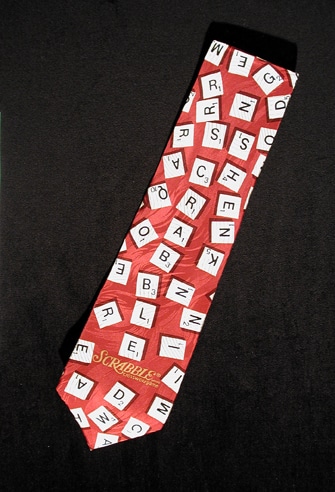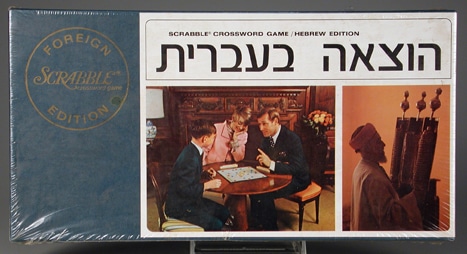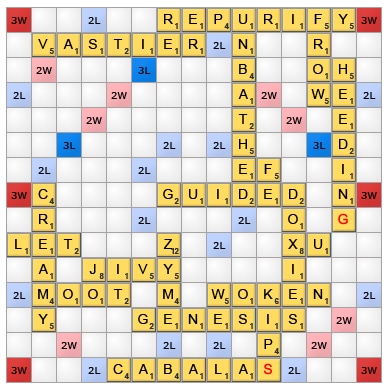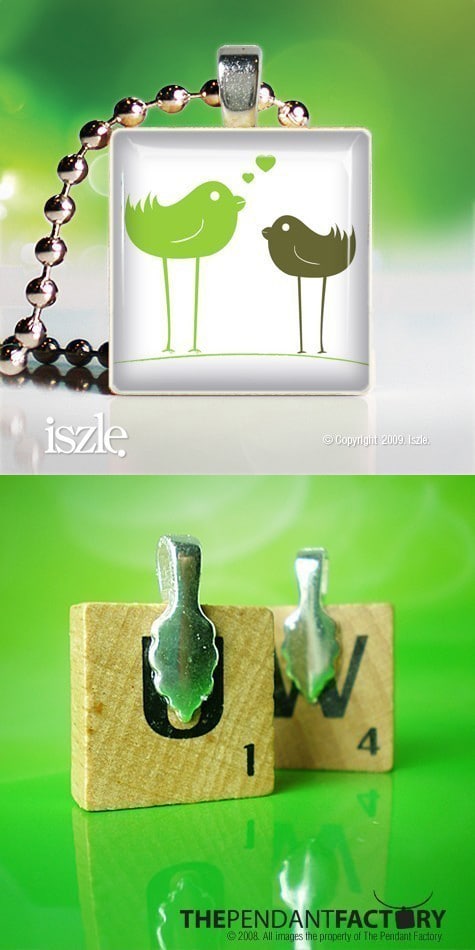 ZA is a perfectly good word. You know, like PIZZA. While you probably wouldn’t use (or eat) ZA in a formal social setting, it’s a two-letter word that might help boost your next Scrabble game. Surprised that ZA is a legal word? Don’t be. The entire world of Scrabble terms can be pretty surprising. From the first word (AA) to the last (ZYZZYVAS), the Scrabble dictionary overflows with the uncommon and plain old bizarre words that high-level Scrabble champions apply to their quest for triumph on the game board.
ZA is a perfectly good word. You know, like PIZZA. While you probably wouldn’t use (or eat) ZA in a formal social setting, it’s a two-letter word that might help boost your next Scrabble game. Surprised that ZA is a legal word? Don’t be. The entire world of Scrabble terms can be pretty surprising. From the first word (AA) to the last (ZYZZYVAS), the Scrabble dictionary overflows with the uncommon and plain old bizarre words that high-level Scrabble champions apply to their quest for triumph on the game board.
 The truth is that I love word games. And while I’ll try my hand at a cryptogram, Jumble, or crossword, my heart belongs to Scrabble. I’ve found that Scrabble engages me in a way that no other word puzzle can. Its design captures the perfect balance of luck and skill. My brother, Mike, who competes in tournaments sanctioned by the North American Scrabble Players Association, studies word lists that read like train timetables—just long strings of letters organized by common patterns such as “SATINE+?” and “3-to-make-4.” If memorizing such lists challenges Mike, with his ample vocabulary, then these words are anything but ordinary. Yet he’s slowly mastering them.
The truth is that I love word games. And while I’ll try my hand at a cryptogram, Jumble, or crossword, my heart belongs to Scrabble. I’ve found that Scrabble engages me in a way that no other word puzzle can. Its design captures the perfect balance of luck and skill. My brother, Mike, who competes in tournaments sanctioned by the North American Scrabble Players Association, studies word lists that read like train timetables—just long strings of letters organized by common patterns such as “SATINE+?” and “3-to-make-4.” If memorizing such lists challenges Mike, with his ample vocabulary, then these words are anything but ordinary. Yet he’s slowly mastering them.
 I’m delighted when my brother practices his vocabulary on me. We share intensively competitive matches through the Scrabble Facebook application and Lexulous, an unaffiliated variation. Mike and I spur each other to extremes as our virtual game boards become spidery and illegible. We try to play the kind of words that Stefan Fatsis marveled over when he infiltrated the world of competitive Scrabble to research his book Word Freak. Fatsis noticed that high-level players don’t think of Scrabble tiles as letters forming words, but rather, as symbols arranged according to game rules. The definitions are irrelevant. If a Scrabble player’s objective is to arrange tiles in a way that will earn the most points, then employing words from the far reaches of the dictionary is an excellent tactic.
I’m delighted when my brother practices his vocabulary on me. We share intensively competitive matches through the Scrabble Facebook application and Lexulous, an unaffiliated variation. Mike and I spur each other to extremes as our virtual game boards become spidery and illegible. We try to play the kind of words that Stefan Fatsis marveled over when he infiltrated the world of competitive Scrabble to research his book Word Freak. Fatsis noticed that high-level players don’t think of Scrabble tiles as letters forming words, but rather, as symbols arranged according to game rules. The definitions are irrelevant. If a Scrabble player’s objective is to arrange tiles in a way that will earn the most points, then employing words from the far reaches of the dictionary is an excellent tactic.
 Though I prefer to play like a high-level champion, I find that not everyone appreciates me employing Scrabble-universe words that have little utility in everyday language. My husband believes that using obscure words with unknown meanings gives me an unfair advantage over him. How could a mismatched contest be fun for either of us? Even so, begrudging but patient, he’ll set up a Scrabble game to occupy me on sick days and snow days. Inevitably, however, he undersells his mastery of the English language and matches me move for move. Believe me, I never hold back. Still, as I plead with him for a chance to play, I always whine, “I promise not to play those strange words,” all the while imagining what one of those strange words could do for me on a triple-word square…
Though I prefer to play like a high-level champion, I find that not everyone appreciates me employing Scrabble-universe words that have little utility in everyday language. My husband believes that using obscure words with unknown meanings gives me an unfair advantage over him. How could a mismatched contest be fun for either of us? Even so, begrudging but patient, he’ll set up a Scrabble game to occupy me on sick days and snow days. Inevitably, however, he undersells his mastery of the English language and matches me move for move. Believe me, I never hold back. Still, as I plead with him for a chance to play, I always whine, “I promise not to play those strange words,” all the while imagining what one of those strange words could do for me on a triple-word square…



